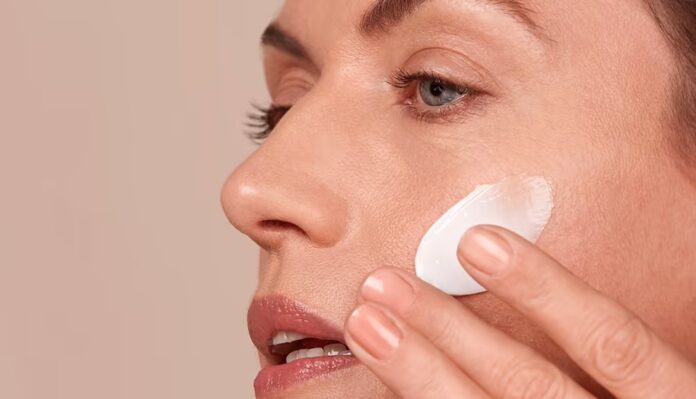Menopause is a natural biological process that marks the end of a woman’s reproductive years. It typically occurs in women around their late 40s to early 50s, although the age can vary. During menopause, the production of hormones like estrogen and progesterone decreases significantly, leading to various physical and emotional changes. One of the aspects affected by hormonal changes during menopause is the skin.
Menopause can bring about several skin problems due to the decline in estrogen levels, which play a crucial role in maintaining skin health. Some of the common skin problems experienced during menopause include:
- Dry Skin: Estrogen helps in maintaining the skin’s natural moisture by promoting the production of oils and collagen. As estrogen levels drop, the skin can become drier, rougher, and more prone to irritation and itching.
- Wrinkles and Fine Lines: Collagen, a protein responsible for skin’s firmness and elasticity, decreases with age and is further affected by the drop in estrogen levels during menopause. This can lead to the development of wrinkles, fine lines, and sagging skin.
- Thinning Skin: The reduction in estrogen can result in thinner skin that’s more susceptible to bruising and tearing. The skin’s ability to repair itself also slows down.
- Acne and Breakouts: While some women experience a decrease in acne during menopause due to reduced oil production, others may experience a resurgence of acne or even the onset of adult-onset acne. Hormonal fluctuations can trigger these breakouts.
- Pigmentation Changes: Uneven skin tone, age spots (also known as liver spots), and other pigmentation changes can occur due to sun exposure over the years and hormonal changes during menopause.
- Increased Sensitivity: Skin might become more sensitive to environmental factors, leading to redness, irritation, and discomfort.
- Hair Growth Changes: Some women might notice changes in hair growth patterns, such as increased facial hair or thinning scalp hair, due to hormonal fluctuations.
- Loss of Skin Radiance: Estrogen helps promote blood flow to the skin, giving it a healthy and radiant appearance. With reduced estrogen, the skin’s natural glow might diminish.
- Managing Menopause-Related Skin Problems:
- Skincare Routine: Adopt a skincare routine that focuses on gentle cleansing, regular moisturization, and the use of products containing antioxidants and hyaluronic acid to retain moisture.
- Sun Protection: Protect your skin from the sun’s harmful UV rays by using sunscreen daily, wearing protective clothing, and seeking shade.
- Healthy Lifestyle: Maintain a balanced diet rich in fruits, vegetables, and omega-3 fatty acids. Staying hydrated and avoiding smoking and excessive alcohol consumption can also benefit skin health.
- Topical Treatments: Consult a dermatologist for recommendations on skincare products that target specific concerns, such as wrinkles, pigmentation, and dryness.
- Medical Interventions: In some cases, dermatological procedures like chemical peels, laser therapy, or dermal fillers might be considered to address more severe skin changes.
- It’s important to note that every individual’s experience with menopause and its effects on the skin can be different. Consulting with a healthcare professional or dermatologist can provide personalized guidance and recommendations based on your specific needs and concerns.



